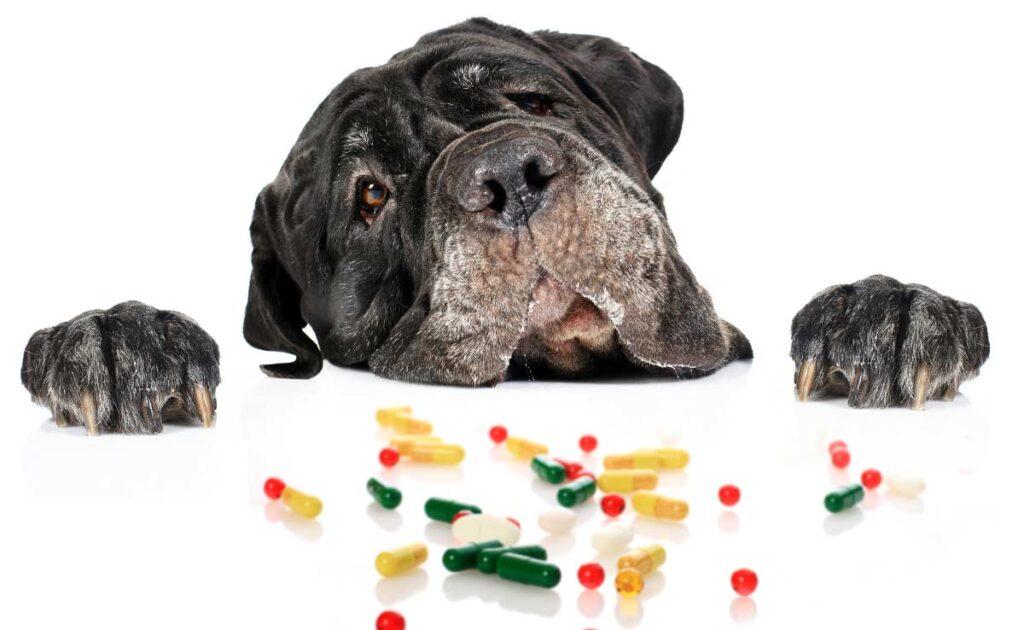
Although vitamin E is beneficial and secure for dogs, not all canines require it. But, dogs taking fish oil may benefit from taking a vitamin E supplement.
Although knowledge about vitamin E dosages may leave you dizzy, vitamin E is healthy for dogs. The recommended vitamin E dosages for dogs seem to vary widely. Even worse, dosages may be indicated in milligrams or international units (IUs) (mgs).
The fact that there are two main types of vitamin E—natural and synthetic—with varying potencies and, consequently, various vitamin E dosages, just adds to the confusion. Although there is a lot to take in, we have the information you require regarding vitamin E supplements for dogs.

Since vitamin E is an antioxidant, it aids in defending the body’s cell membranes. It contributes to fat metabolism, strengthens immunity, and increases fertility. Your dog’s skin, hair, muscles, and vision will all benefit from it.
Although canines can safely consume vitamin E, not all dogs require a supplement. Canine vitamin E insufficiency is uncommon because most dogs consume plenty of it in a balanced diet. If you’re worried, your veterinarian can order blood tests to determine whether your dog actually has a deficiency.
It’s okay to apply topical vitamin E oil to dogs. Alpha tocopherol and an oil, like virgin olive oil, should be listed under ingredients. It can be used to paw pads, dry cracked nostrils, and irritated or crusty skin regions.
Vitamin E may be advantageous for dogs using fish oil. The beneficial polyunsaturated fatty acids in fish oil for your dog can eventually deplete the body’s vitamin E reserves. The tiny quantity of vitamin E found in fish oil supplements mostly serves as a preservative and is typically present in proportions that are too low to raise your dog’s levels. For dogs getting fish oil, the most typical guideline for vitamin E supplementation is 400 IU of vitamin E for every 1,000 mg of fish oil.
You must first identify the type of vitamin E present in the bottle you bought in order to estimate the recommended dosage for your dog:
Vitamin E occurs naturally as d-alpha tocopherol (d-).
You’ll then need to perform some math. Keep in mind: 2 mg of synthetic vitamin E (dL-) are equivalent to 1 mg of natural vitamin E (d-).
You may also need to convert IU to mg or mg to IU, which isn’t difficult:
So, using these formulas, here are examples:
Of course, aside from the fish oil indicated above, that still leaves open the question of how much vitamin E to give your dog. As a result, we list a few issues in our chart below, along with suggested dosages, that your dog may benefit from vitamin E supplementation for.
Please note that while all of these dosage suggestions are off-label, they were all drawn from renowned veterinary medicine formularies. Never administer a supplement of any kind to your dog without first consulting your veterinarian.
In dogs, vitamin E is mostly harmless; overdose problems are uncommon. Accidental acute overdose typically causes gastrointestinal distress, including vomiting and diarrhea. Persistent overload may result in problems with the other fat-soluble vitamins’ absorption (A, D, and K). When fed too much vitamin E, dogs with low vitamin K levels may experience excessive bleeding due to coagulation issues.
For more information about Vitamins contact us via our contact page or visit our Facebook page.